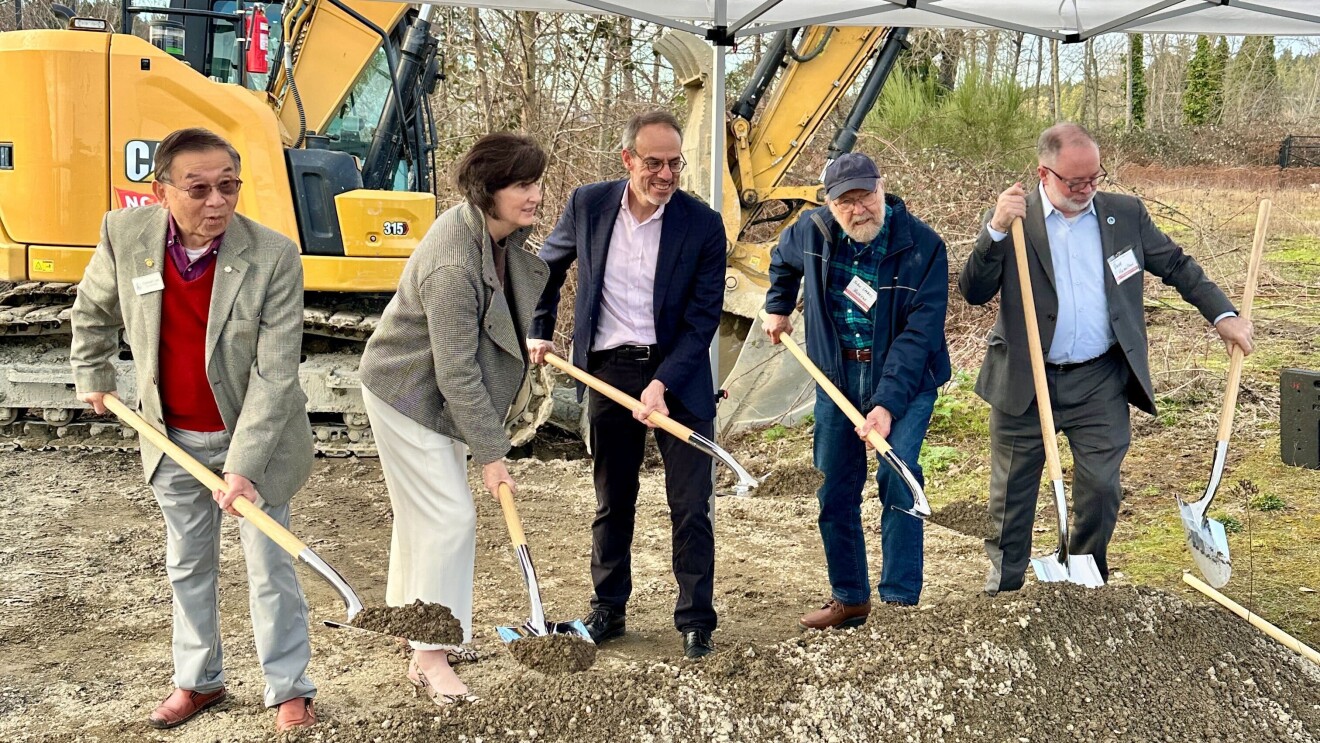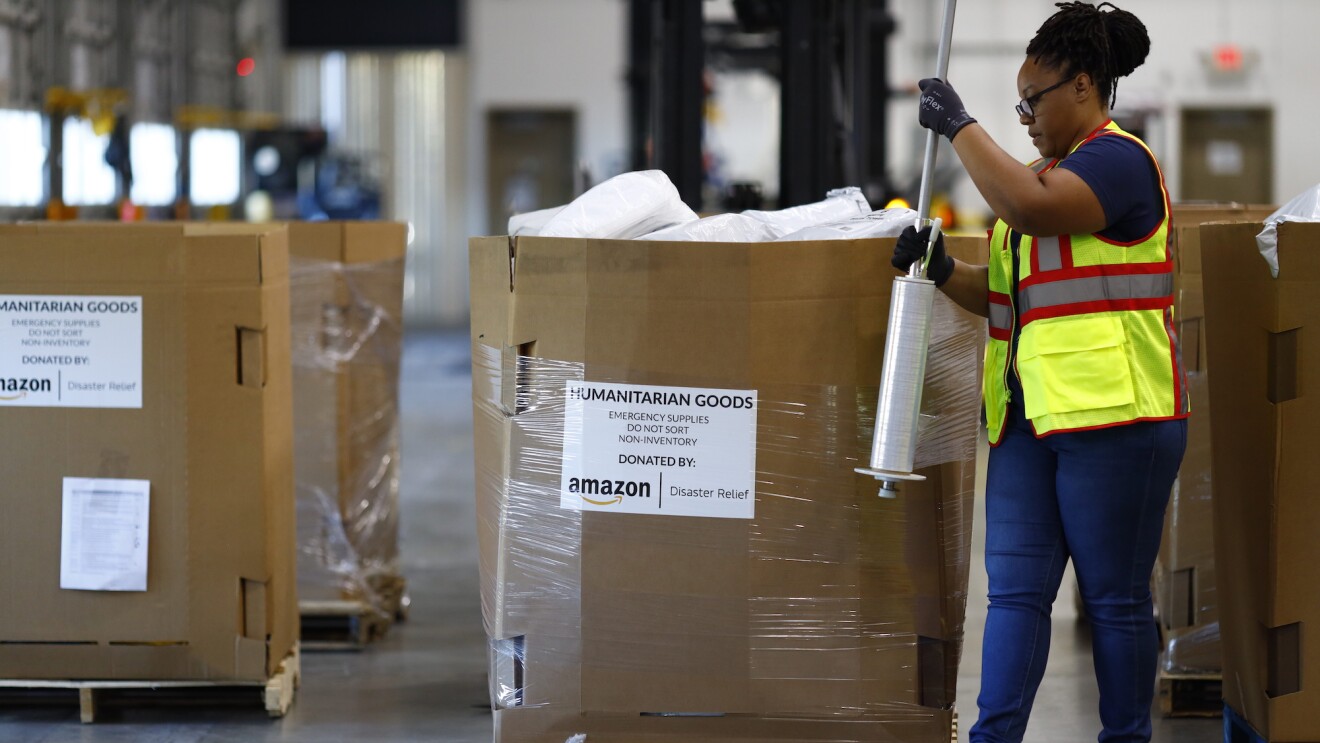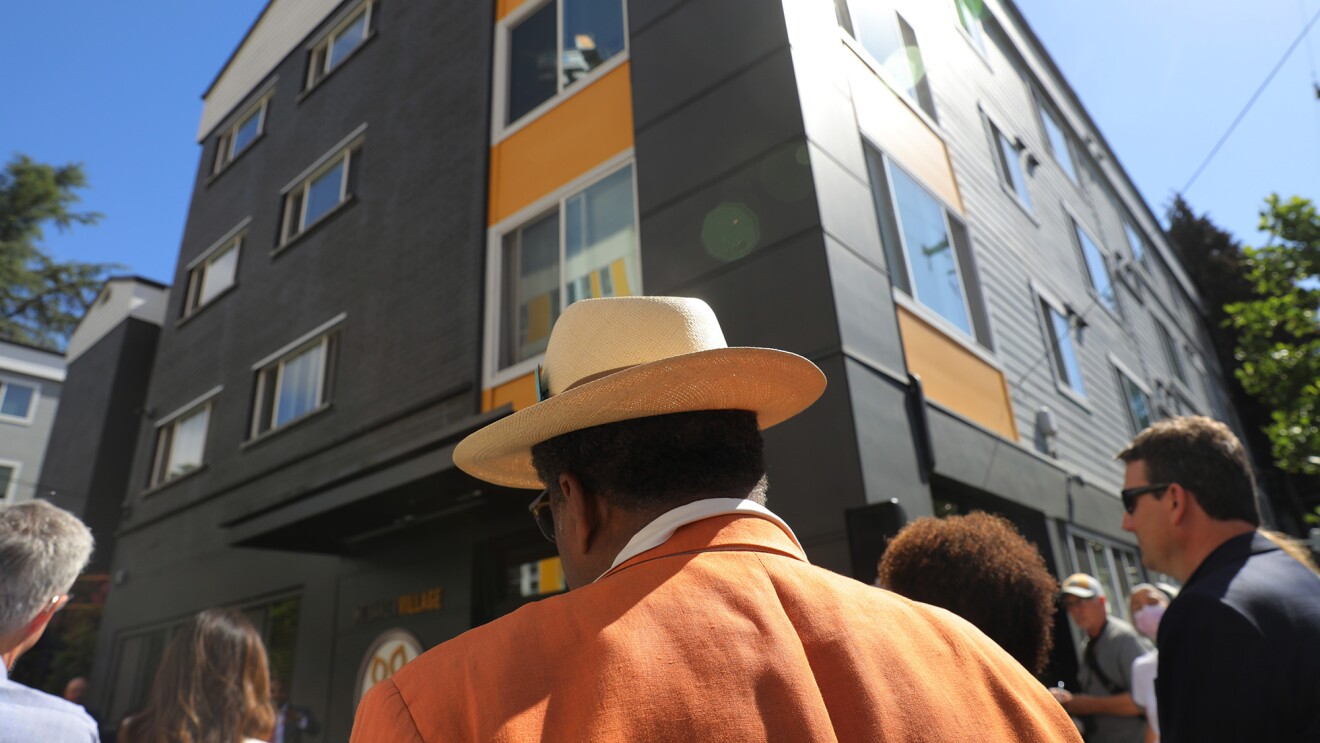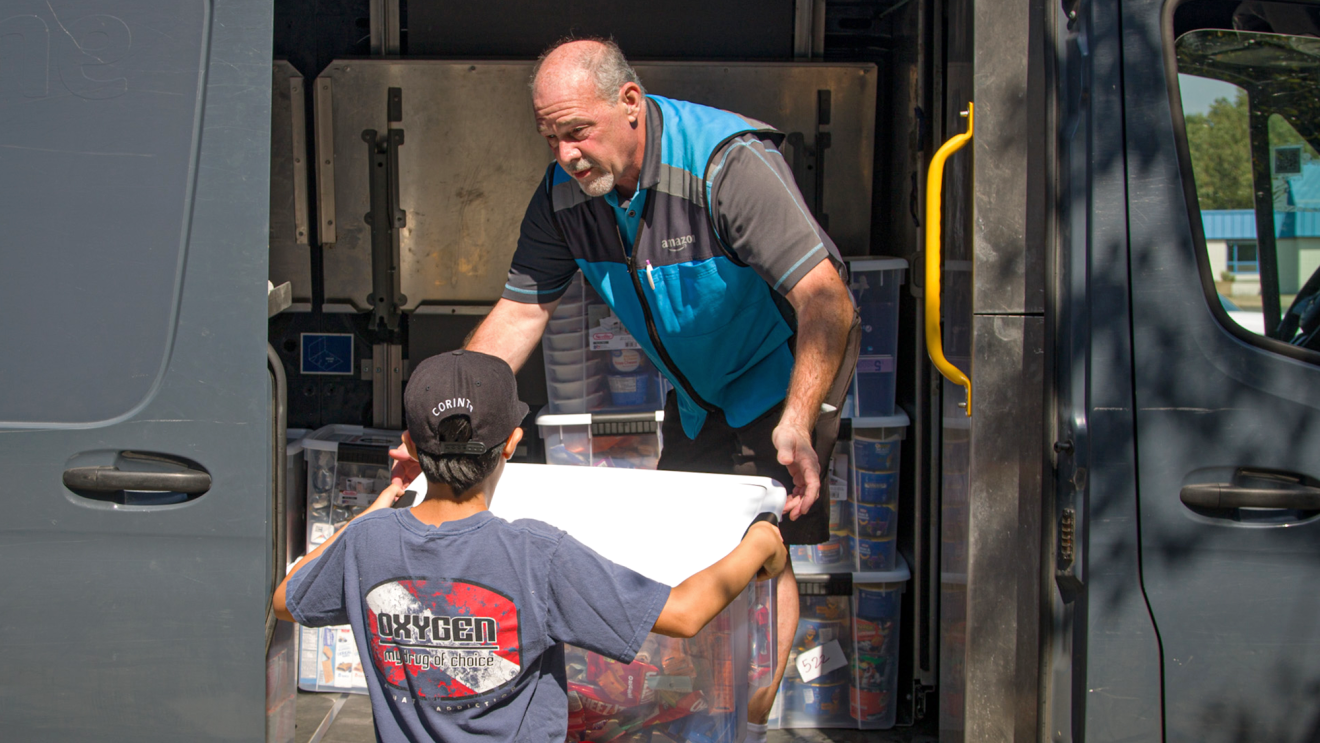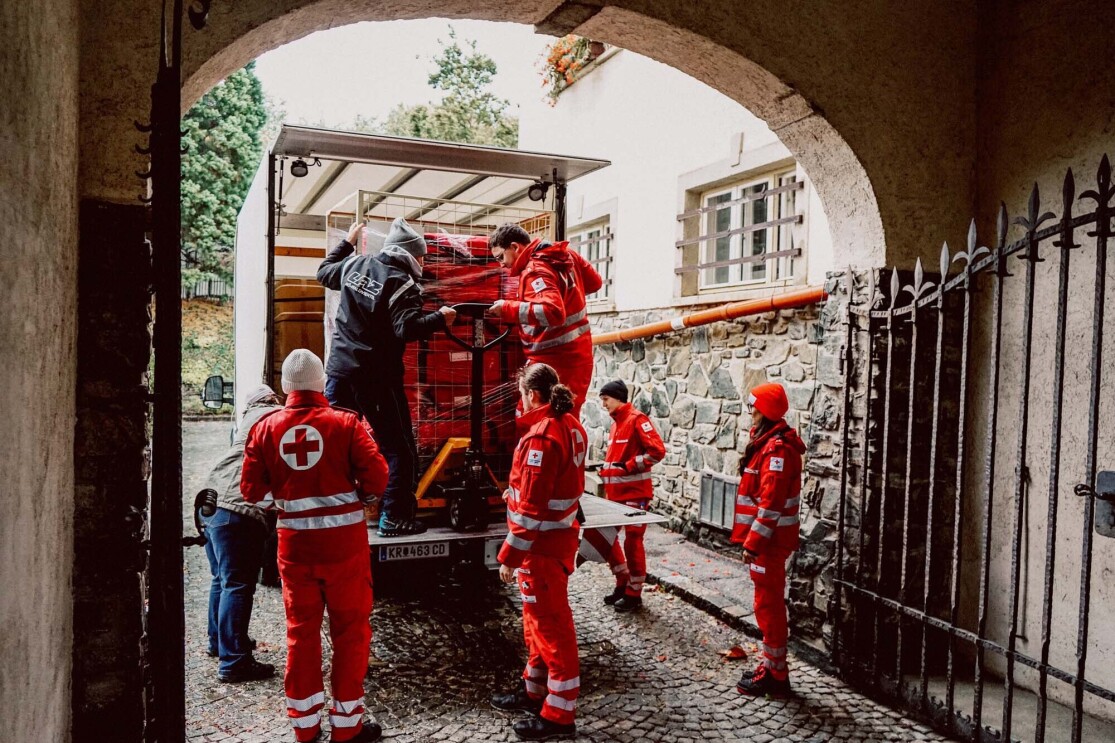We spoke with President and CEO of Friendship Place, Jean-Michel Giraud, about their new Family Connect program, working with Amazon, and his goals for Friendship Place going forward.
What is Friendship Place?
Friendship Place is a nonprofit organization based in Washington, DC. Now 27 years old, we're known for providing innovative solutions to end homelessness. Above all, we are person-centric – we believe in treating people as people, and empowering them to rebuild their lives as quickly and as cost-effectively as possible.
Friendship Place is a nonprofit organization based in Washington, DC. Now 27 years old, we're known for providing innovative solutions to end homelessness. Above all, we are person-centric – we believe in treating people as people, and empowering them to rebuild their lives as quickly and as cost-effectively as possible.
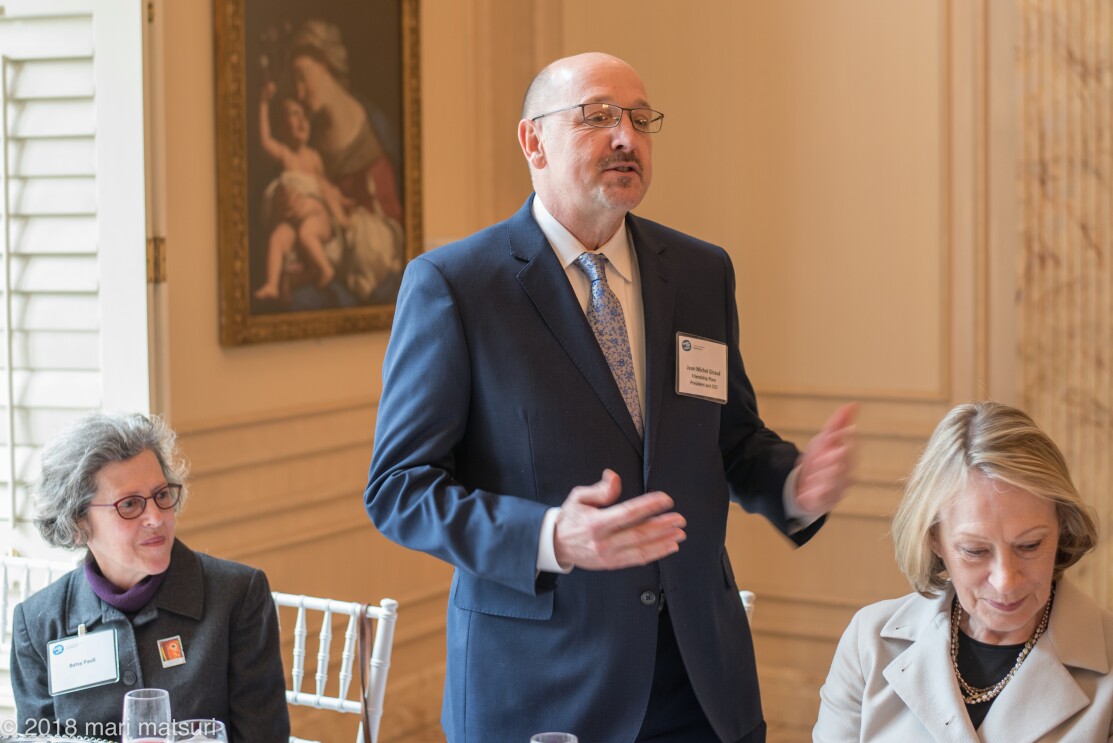 Friendship Place President and CEO Jean-Michel GiraudPhoto by Mari Matsuri
Friendship Place President and CEO Jean-Michel GiraudPhoto by Mari MatsuriYou became President and CEO of Friendship Place in 2006 – what draws you to this type of work?
I’m a linguist by trade. I grew up in Grenoble, France and am about to celebrate 40 years of living in the United States.
I’m a linguist by trade. I grew up in Grenoble, France and am about to celebrate 40 years of living in the United States.
I fell into this field of work because I found it meaningful. I grew up in a family where there was depression and later addiction. My family member was also homeless here in Washington, DC.
When I came to my interview at Friendship Place, I was moved by the work already going on there. Friendship Place was meeting people where they were, and helping them rebuild their lives with purpose and on their own terms – I strongly believed in this model, and still do.
Friendship Place has saved thousands of lives over the years – is there a particular participant that stands out to you?
Of course I am inspired by all of our participants who rebuild their lives, but I always like to mention Shelley. A Coast Guard veteran, she came to us with both her daughter and granddaughter. She said she sometimes slept at a bus stop.
Of course I am inspired by all of our participants who rebuild their lives, but I always like to mention Shelley. A Coast Guard veteran, she came to us with both her daughter and granddaughter. She said she sometimes slept at a bus stop.
We worked with her in our Veterans First program to rebuild the life of her family very quickly – that was the key. We helped her get a job as a medical technician and find a place to live with her family.
Now, she is on our Board and regularly talks to current Friendship Place participants. Something that she often says that really sticks with me is that Friendship Place is a hand up for veterans. She knew her family was resilient enough to rebuild, and Friendship Place empowered her to do this quickly – we provided effective and clear support for what she needed most.
You launched your new program, Family Connect, with money from Amazon’s $1 million match offer, and the generous donations that stemmed from that. What is Family Connect and how is it different than other programs out there?
Family Connect is unique because it offers rapid, critical solutions to participants in Washington, DC and beyond – its reach is expanding as we speak.
Family Connect is unique because it offers rapid, critical solutions to participants in Washington, DC and beyond – its reach is expanding as we speak.
With the Family Connect program, we are able to step in to assist with rapid rehousing – sometimes within 24 or 48 hours of an eviction notice being served. For parents, a situation like this incites instant panic, so intervening quickly is key. Private funding, like the Amazon match offer, allows us to be flexible and nimble, which is imperative for this type of work. Along with rapid rehousing, we can focus on rapid employment or re-employment at the same time.
Additionally, Family Connect is special because we work with families even if they have children over 18, if a mom or dad do not have their children with them at the moment, or less traditional family units. Family reunification is important to us and we understand that “family” means something different to everyone.
Private funding, like the Amazon match offer, allows us to be flexible and nimble, which is imperative for this type of work. Along with rapid rehousing, we can focus on rapid employment or re-employment at the same time.
Jean-Michel Giraud
Amazon has over 2,000 employees that work and live in or near Washington, DC. What is special about this community when it comes to fighting homelessness?
In and around Washington, DC, there is a strong feeling for the need for social justice. It has struck me over the years that there are many generous, powerful people here who not only want to support our cause, but also want to help shape and improve homeless services and solutions – I don’t think you find that everywhere.
In and around Washington, DC, there is a strong feeling for the need for social justice. It has struck me over the years that there are many generous, powerful people here who not only want to support our cause, but also want to help shape and improve homeless services and solutions – I don’t think you find that everywhere.
What has Amazon’s $1 million match offer meant to you and Friendship Place?
It was incredible to hear about the match offer from Amazon, and that they wanted to give us the freedom to develop a program to meet the needs of families in and beyond Washington, DC. It was the single, largest, private gift we’ve ever received. Amazon has energized the corporate philanthropic community – we think their donation will change this landscape and we hope even more companies step up.
It was incredible to hear about the match offer from Amazon, and that they wanted to give us the freedom to develop a program to meet the needs of families in and beyond Washington, DC. It was the single, largest, private gift we’ve ever received. Amazon has energized the corporate philanthropic community – we think their donation will change this landscape and we hope even more companies step up.
Fighting homelessness is a national movement right now. For many years, we have been striving for a national presence, which is not always the case for a regional nonprofit organization. We are excited to share our models because we are proud of the quality and value of our work. Amazon’s match offer felt reaffirming and is helping us carry our message, model, and style even further.
Family Connect has already supported almost 30 families in and beyond Washington, DC. What issues would you like to further tackle next?
I feel very passionately about working with more and more youth – I think it is essential because when we can support our homeless youth, and put them back on track, we can help them for their whole life ahead.
I feel very passionately about working with more and more youth – I think it is essential because when we can support our homeless youth, and put them back on track, we can help them for their whole life ahead.
Additionally, we want to focus on aging in place – we want to dig into keeping people in their homes, with a higher quality of care, as that is what we find they truly want. We find people are afraid to move to a more medical model, like a nursing home, so we’re working to provide them the appropriate, valuable, and humane care to age in place.
I always remind myself, that in all of these years in this field, if we continue to treat our participants the right way, as people should be treated, then we have made a lasting contribution to this community.



